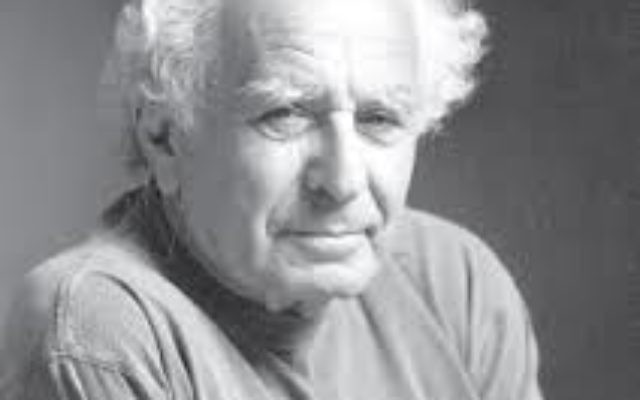Life Without Pain, With Dignity
One Man’s View
By Eugen Schoenfeld
A few weeks ago Jerry Brown, the governor of California, announced that his state was joining Oregon, Vermont and Washington in legalizing medically assisted suicide. People who are declared by two physicians as having incurable diseases and suffering from intense pain may chose to end their lives peacefully and with dignity.
Of course these four states are in the moral avant-garde. Most people, especially those strongly committed to Christianity and Judaism, consider suicide immoral and a sin. No wonder, then, that Brown had to overcome his own inner battle before signing the bill into law.
“I do not know what I would do,” he wrote, “if I were dying in prolonged and excruciating pain. I am certain, however, that it would be a comfort to be able to consider the options afforded by this bill. And I wouldn’t deny that right to others.”
My wife died a year ago, succumbing to Burkitt lymphoma, one of the most aggressive forms of cancers. Luckily, she only had three painful days when she was completely sedated. The minute the morphine was losing its grip on her, she began tearing off her clothes, clearly indicating her pain and distress.
I do not know how I would have felt should my wife have been suffering pain and living with indignities. Would I have supported her if under such conditions she would have chosen suicide?
Traditional Judaism considers suicide a sin, and it is punishable by forcing the sinner to be buried in the least desired place — next to the cemetery fence. I remember that in the shtetl where I lived, committing suicide brought shame to the family, and people only whispered about it in the belief that whispering would be less likely to intensify the shame the family felt.
From a traditional perspective we have accepted Rabbi Elazar HaKapar’s view that humans have no choice but to accept life as G-d ordained. In “Ethics of Our Fathers,” he is quoted as saying: “Without your will you are formed, without your will you are born, and against your will you live and without your will you die.”
In the Yad Avraham commentary quoting a noted scholar in Babylon, the following argument is brought forth: There are times when man is so afflicted with suffering that he prefers death over life, yet G-d does not allow him to die. Rashi proposes that we deposit or entrust our existence to G-d every night while we are asleep, and when our soul ascends to heaven, the tormented person asks G-d to keep him there forever, but the soul must obey G-d’s wishes and must return to the body to stay alive against his will.
Before I continue, I must define what I mean by suicide. Suicide is any act when the performer of the act knows that it will end in his demise. Now I point out that not all suicides are considered by Jews or by Christians as sins. There are conditions when one who commits suicide is given the status of a hero. When in the heat of battle one throws himself on top of a grenade, knowing well that he will die but by so doing will save his comrades’ lives, his suicide is considered a heroic act, and he is seen as a hero to be honored.
But the fact remains that our hero has by definition committed suicide.
I guess most readers have, as I did, stood on top of Masada thinking about the thousands who in the final hours of their rebellion against Rome, not wishing to be enslaved, chose to die as martyrs, which in this instance was a form of suicide.
On the High Holidays I have often read in the sections we call Zichronot (remembrances) the descriptions of Jews committing suicide during the Crusades so that they would not be desecrated and tortured and finally killed by the Christian hordes. These are people who died for the sake of G-d and hence are martyrs to be honored.
Historian Lewis Namier, when asked why he, as a Jew, devotes himself to English history and not to Jewish history, replied: “There isn’t a modern Jewish history; there is only Jewish martyrology.”
In short, Jewish history is resplendent with people committing suicide, but their acts are defined as death for the sake of heaven.
Why, then, is Judaism against suicide? Of course, one could say that when a person chooses to die, he defies the will of G-d, who chooses that he should live. If I were a theologian, perhaps I could argue as Job’s friends did that G-d gives us tsuris (distress) as punishment.
As I have said in other essays, I do not believe in the existence of a punitive G-d. I do not believe that G-d would want us to continue to live even for a few months in pain often coupled with indignity. If anything, I believe in the freedom of the will, coupled with the value of tzar bal chai, our duty to abolish as far as we can both physical and emotional pain.
This is part of the Jewish value of g’milat chassodim. I do not believe that the Lord who advised us regarding the abolition of pain in the laws of tzar bal chai would take delight in the suffering of any human being. He who instructed us about not shaming others, who taught us about maintaining the dignity of the blind and the deaf, and who gave us the privilege of choice would not force anyone to live and suffer the pain and indignities that are associated with many incurable diseases.





comments